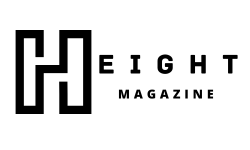Doge Software Licenses Audit HUD: Revealing Massive Unused License Waste

Imagine a world where your company spends thousands of dollars every year on software licenses that remain untouched. Sounds absurd, right? Yet, many organizations fall into this trap without even realizing it. When it comes to managing doge software licenses, companies often overlook one crucial aspect: auditing. In this digital age, understanding how to effectively track and utilize software licenses can mean the difference between profitability and unnecessary expenditure.
Today, we’ll dive deep into the recent audit conducted by HUD on their doge software licenses—a case study that reveals not just the extent of unused license waste but also highlights why regular audits are essential for any organization looking to streamline its operations and save money. Buckle up as we uncover valuable insights that could reshape your approach to license management!
Importance of License Auditing for Companies
License auditing is crucial for companies navigating the complex world of software compliance. Many organizations unknowingly over-purchase licenses, leading to unnecessary expenses.
Regular audits help identify unused or underutilized licenses. This proactive approach can lead to significant cost savings. By understanding actual usage, businesses can adjust their licensing strategies accordingly.
Moreover, license audits reduce the risk of non-compliance penalties. Software vendors are increasingly vigilant about licensing agreements and violations can result in hefty fines. Staying compliant not only protects finances but also strengthens vendor relationships.
Additionally, an audit fosters better resource allocation within a company. It encourages teams to optimize technology use and ensures that employees have access to necessary tools without excess expenditure on unused resources.
In this digital age, where software plays a vital role in operations, regular license checks are essential for maintaining efficiency and financial health.
Case Study: HUD’s Licensing Audit of Doge Software
The Department of Housing and Urban Development (HUD) recently undertook an extensive audit of Doge software licenses. This initiative aimed to uncover the actual usage of these licenses across their operations.
Auditors meticulously reviewed installation records, user accounts, and compliance documentation. They sought to identify any discrepancies between purchased licenses and those in active use.
What they discovered was eye-opening. A significant number of licenses remained dormant, unused by employees or departments for extended periods.
This led HUD officials to question not only the financial implications but also the effectiveness of their license management practices. The findings prompted discussions about streamlining software expenditures while enhancing productivity through better resource allocation.
As organizations increasingly rely on technology, such audits can reveal critical insights that drive efficiency and cost savings.
Results of the Audit and Unused License Waste
The recent audit of Doge software licenses at HUD unveiled staggering figures. The findings revealed that nearly 40% of purchased licenses remained untouched. This underutilization represents a significant financial drain.
Many departments had tools they didn’t even know existed. In some cases, entire teams were paying for access to software features they never used. It’s a classic case of excess without awareness.
Licenses that go unused not only waste money but also hinder operational efficiency. Staff members might be struggling with outdated tools while premium resources sit idle in the background.
This disconnect highlights the urgent need for better license management practices. Companies must stay informed about their assets and ensure optimal usage to avoid unnecessary expenditures in the future.
Impact on Company Finances and Efficiency
The financial implications of unused software licenses can be staggering for any organization. When companies invest in doge software licenses but fail to utilize them fully, they essentially throw money away. This unspent budget could be redirected toward valuable projects that enhance productivity.
Moreover, wasted licenses lead to inefficiencies within teams. Employees may struggle with inadequate tools or lack access to essential features due to poor license allocation. This not only slows down workflows but also diminishes overall morale.
In a competitive landscape, agility is key. Companies burdened by unnecessary licensing costs cannot pivot swiftly when opportunities arise. By optimizing their license usage, businesses can free up resources and foster an environment focused on innovation and growth.
Tracking these metrics enables informed decisions regarding future purchases and renewals while ensuring every dollar spent contributes meaningfully to company objectives.
Tips for Properly Managing Software Licenses
Managing software licenses effectively is crucial for any organization. Start by keeping an up-to-date inventory of all software assets. This ensures you know what you’re using and prevents overspending.
Implement a centralized system to track license procurement, renewals, and expirations. A dedicated dashboard can provide visibility into your software usage patterns.
Regularly review license agreements to understand terms and conditions better. Many organizations miss out on potential savings due to overlooked clauses or renewal options.
Encourage teams to communicate about their software needs openly. Collaboration helps avoid duplicating purchases and fosters efficient resource utilization.
Consider leveraging automation tools for compliance checks. These tools can streamline the auditing process, saving time and reducing errors in tracking licenses across departments.
Conclusion and Recommendations
The findings from the Doge Software Licenses Audit conducted by HUD underscore the critical need for companies to regularly assess their software licenses. The results revealed a staggering amount of unused licenses, leading to unnecessary expenses that could otherwise be allocated more effectively within organizations.
For businesses looking to optimize their spending and enhance operational efficiency, implementing a robust license management strategy is essential. This involves not only regular audits but also maintaining clear records of software usage across teams.
Additionally, investing in automated tools can streamline the tracking process and provide real-time insights into licensing status. Training employees on proper license usage can further reduce waste and ensure compliance with licensing agreements.
By prioritizing effective management of doge software licenses, companies can significantly improve their financial health while maximizing resource utilization. Embracing these practices will lead to better decision-making and ultimately a stronger bottom line.




